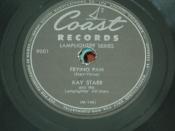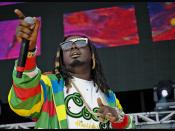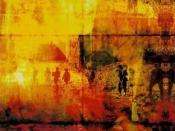We all believe healing is easy. Healing is just a matter of time, and maybe a few pills. Healing is an effortless activity. "Triage", written by Scott Anderson, proves this common misconception wrong. The reader is displayed with examples of our natural tendencies to move away from sources of pain and complications. We are shown how we also tend to grow closer to people we believe can cure us. Anderson illustrates how willpower is an essential factor in healing, and how we establish strong beliefs to prevent us from being inflicted with pain in the first place.
We see how we often distance ourselves from harmful things that hinder healing.
It is evident that Mark endeavours to move away from the horrific war experiences he has absorbed, and especially the memories of the death of his friend and colleague, Colin.
After a session of meaningless lovemaking, Mark is confronted by Elena and is asked "Mark, tell me what happened out there."
His reply of "Nothing, Elena" clearly displays his attempt to distance himself from the terror in his past.
Mark hopes the gap between himself and the event will act as a safety barrier, preventing sorrow seeping through into his life. His behaviour is synonymous to the behaviour of not just people in extreme careers, such as war photography, but of everyone. We realize that we all are inclined to disassociate ourselves from sources of pain in order to decrease the intensity of that pain.
Anderson uses Mark's camera as a metaphor to express this idea. The filter and the lenses of the camera represent the line between observation and participation that Mark desperately strives to stay on one side of.
This metaphor is very successful as it is repeated throughout the story, creates a unifying feel and...


